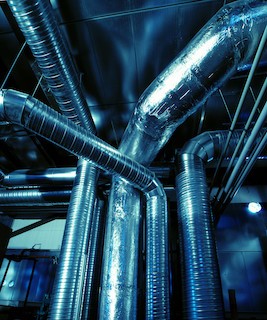Gate vs. Ball Valve: What Are the Pros and Cons?
12-12-22

Valves play a vital role in any pipeline system. You can use these to control the flow of liquid or gas through your pipes. This keeps your system running properly and protects your pipes.cChoosing the wrong type of valve for your pipelines could cause serious structural issues and compromise their safety. It might also mean that you overpay for your valves.
So how do you pick between gate vs ball valves? Read on to find out everything you need to know.
Gate vs. Ball Valves: How Do They Work?
You can use both gate and ball valves to stop the flow of water or gas through pipelines.
A ball valve positions a rotary ball within the pipe itself. This is attached to a handle outside the pipe by a stem and bore. As you turn the handle 90 degrees, the ball rotates, opening the valve and letting liquid or gas flow through it. In a gate valve, the “gate” disc is attached to a spindle stem with a bonnet handle at the top. As you turn the handle, the gate disc will lift or lower into place in the pipe, leaving it open or closed.
To open or close a valve, you typically have to turn the handle 360 degrees.
Ball vs. Gate Valves: How Do They Compare?
When it comes to choosing between ball and gate valves there are a lot of things you need to consider. This includes:
- Which value has a better shut-off mechanism
- The risk of water hammer with each valve
- How easy it is to tell whether the valve is open or closed
- How much each valve costs
- How much space you need to install each valve
- The size of each valve
- The risk of leakage with each valve
- How durable each valve is
With that in mind, let’s take a closer look at the pros and cons of using gate valves vs. ball valves.
Pros and Cons of Gate Valves
Gate valves are favored by plant engineers across America. Take a look at their pros and cons to find out why.
Pros
Gate valves offer a slower shut-off mechanism than ball valves. This is because you have to turn the handle 360 degrees in order to shut the valve off. However, unless you are looking for an emergency shut-off valve this shouldn’t be a problem. In fact, their slow shut-off means that gate valves significantly reduce the risk of hydraulic shock (also known as water hammer.) This occurs when there is a pressure surge within a pipe and can cause serious damage to a pipe system. So gate valves are a great way to protect your building’s pipework.
If you are looking to keep costs low then gate valves are a great choice. They are significantly cheaper than ball valves that offer the same specifications. They also require less installation space so are ideal for tighter spaces and are perfect for pipes with a bore size of 2 inches or more.
Cons
No valve is perfect, however, there are only a few minor cons of using gate valves.
For example, it can be difficult to detect whether a gate valve is open or shut simply by looking at it. You need to be close to the valve to tell if it is open or shut. When it is open, the threaded spindle and handle will be sticking out of the pipe. When it is shut, the threaded spindle will be inside the pipe, with the handle parallel to its surface. Checking this can take a little longer but isn’t an insurmountable issue. Gate valves are also more prone to leaking and corrosion. Fortunately, they are also cheap to repair or replace. So if you do run into an issue it won’t cost you the earth.
Pros and Cons of Ball Valves
If your plant or engineering business has a large budget then you may want to consider using ball valves in your pipework. Here are the pros and cons of these types of valves.
Pros
Ball valves are certainly an investment but they deliver quality and are easy to use. Each valve provides a tight seal and is very durable.
You can also turn ball valves off very quickly. This makes them ideal as emergency stop-off valves.
Thanks to the position of the handle, you can easily spot if a ball valve is open or closed. So the risk of a valve being left in the wrong position is lower.
Cons
Ball valves tend to be more expensive than gate valves with similar specifications. So you might be surprised to find out that these valves have a lot more downsides than their cheaper counterparts.
Their fast shut-off mechanism is great for emergencies. However, this also increases the risk of ball valves causing hydraulic shock and damaging your system. This can be a serious issue for pipes with a bore size of two inches or more.
They also require more installation space, which makes them less versatile than gate valves. So you don’t get nearly as much value for your money.
Find Amazing Valves For Your Pipe System Today
As you can see, when it comes to choosing between gate vs ball valves there are a lot of factors to consider. Overall, gate valves pip ball valves to the post on price and pipe safety.
These valves offer amazing value for money and can protect your pipe from hydraulic shock. You can also position them in tight spots, making them extremely versatile.
So what are you waiting for? If you’re looking for new valves for your pipeline, request a quote from the Everlasting Valve Company today. We’re happy to help.